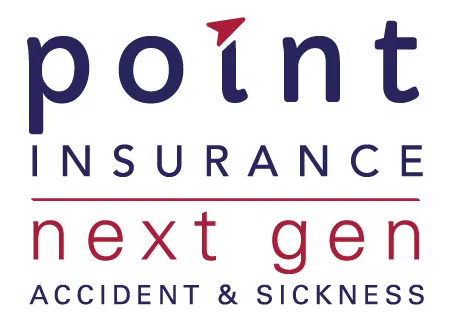The responsibilities shouldered by a real estate agent are quite extensive, as clients rely on them to offer great advice and service. Because selling real estate is such a complex and involved process, there is plenty that can go wrong. For this reason, having adequate business insurance is vital for anyone in the real estate business.
You can compare quotes for many types of business insurance here with Savvy. Just answer a few simple questions about your business and the insurance you need, and within minutes you’ll have multiple quotes from a range of respected insurers to consider. Use our quick and easy comparison service to help you find the best value insurance to cover your real estate business today.
Why compare business insurance policies through Savvy?
100% free service
There's no need for you to pay a cent to compare a variety of competitive policies side-by-side in one place.
Compare policies online
You can consider the inclusions, premiums, benefits and other key factors easily online, whether you're at home or on the go.
Trusted insurers
Considering offers from trusted providers can help give you peace of mind that you're comparing high-quality products.
What types of insurance should I buy for my real estate business?
There are several types of business insurance you should consider if you run a real estate agency. These include:
Professional indemnity insurance
The greatest risks faced by real estate agents relate to legal liability. Whether a client claims you undervalued their property, or a property deal falls through, there is always a risk of a professional liability lawsuit. For this reason, professional indemnity insurance is a must for all real estate agents.
Professional indemnity insurance covers you against claims that the service you provided was negligent or fell short of expected professional standards. It’s the most important type of insurance to have if you’re in the real estate business and is a compulsory requirement for membership of most professional associations. Cover is available starting from $250,000, but can extend up to $10 million or more.
What it covers
- Cover for your legal defence costs
- Payment of compensation if there’s a successful claim against you
- Payment of court-awarded damages to the litigant
- Cover for the cost of disciplinary proceedings or investigations
Public liability insurance
Public liability insurance is also essential if you have a sales office which is visited by the public. It will cover you in the event a client or a member of the public is injured or sustains property damage as a result of your negligent business activities. This insurance can offer between $5 million and $20 million worth of cover, although higher limits are available if you sell property worth millions of dollars.
What it covers:
- Third-party personal injury claims
- Damage to a third party’s property
- Legal fees to defend yourself
General business insurance
General business insurance may also be worthwhile to protect your office or business premises from theft and natural disasters. It can also cover portable equipment such as laptops. A business insurance package can also include additional glass breakage insurance, which can offer protection in case your glass shop front or office reception desk sustains damage. Commercial vehicles aren’t included under general business insurance, so you may need separate commercial vehicle protection for your work vehicle.
What it covers:
- Fire, storms, theft, vandalism and collision which cause damage to your business assets
- Specialist cover for electronic equipment and other portable equipment
- Limited business interruption insurance
Cyber liability insurance
Cyber liability insurance can offer you financial protection from the work of cyber criminals who may be after your client’s confidential information. It’s another form of insurance which is vital for real estate agents and also other associated professionals such as accountants, lawyers and conveyancers.
What it covers
- Data breaches including theft of client information
- The cost of a forensic investigation into the cause of the breach
- Data recovery costs
- Cyber extortion and denial of service threats
- Crisis management costs
- Advertising and communicating with customers
- Legal costs including any fines and penalties imposed
What isn’t covered under business insurance for real estate agents?
The most common exclusions for these types of insurance include:
- Injury to yourself or your employees
- Flood damage
- Glass breakage (which can be purchased separately as an add-on)
- Unlawful activity or criminal negligence
- Reckless behaviour or intentional damage
- Anything to do with asbestos or the effects of pollution
- Damage to computer hardware
- The upgrading of a system not related to cybercrime
- Power outages or failure of satellite or telecommunication services
- Prior known circumstances or risks
How much will my real estate business insurance policy cost?
There is no set cost for an insurance policy, as each real estate agent is different and has different requirements. Many factors influence the cost of business insurance, including the following:
- The state you work in
- Whether you live in a rural or urban area
- Whether you’re a sole trader, are in a partnership, or run a business
- Your business size and turnover
- If you have any employees
- Your insurance history
- Whether you’ve made an insurance claim in the past five years
The main factor which will affect the cost of your insurance is the industry you’re in. All businesses in Australia are classified according to the risk their industry poses, and are allocated a risk ratio. These ratios are used by insurers to calculate the comparative risk of any one business compared to another. Therefore, the cost of insurance for one real estate business based in Sydney may be similar to a real estate agency based in Melbourne.
You can find out how much insurance will cost for your real estate agency by comparing quotes right here with Savvy. Whether you need insurance for yourself as a sole trader or for your business employing other agents, you’ll be able to find a policy which is perfect for your business needs right here.
Why do I need business insurance as a real estate agent?
Any situation where you are offering personal advice and services to the public comes with risks. Unfortunately, the risks faced by real estate agents are numerous due to the complex nature of your work. Loans can be rejected, properties suddenly taken off the market or deals can fall through at the last minute, which may be through no fault of your own.
However, in all of these circumstances, there is a risk that you can be held liable for the problem due to the advice you’ve given. For this reason, it’s vital to have good business insurance protection to cover you against any eventuality. Business insurance is there to protect you and your reputation no matter what claims are made.
Most small to medium-sized businesses have some contingency funds available, but they’re rarely sufficient to cover the cost of a major liability claim, which can amount to millions of dollars. If such a claim is made against you or your business and you do have adequate insurance to protect yourself, you’ll have a much better chance of recovering quickly and getting back on your feet.





















